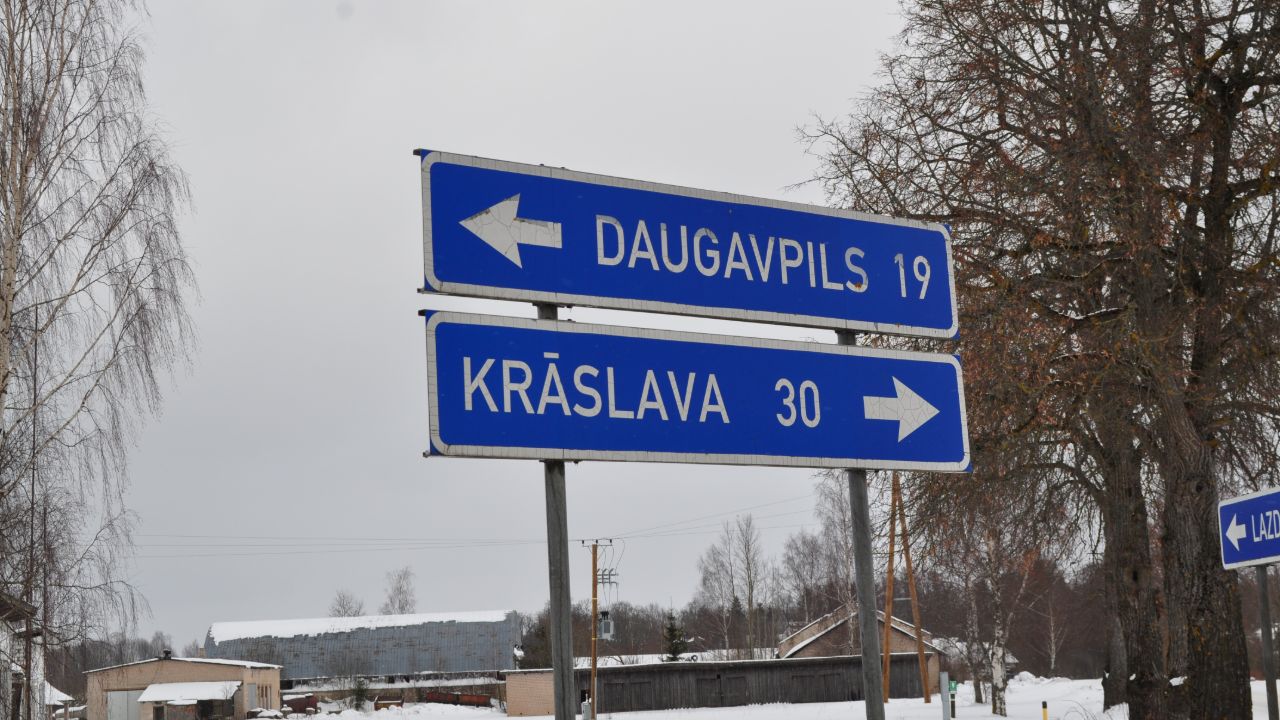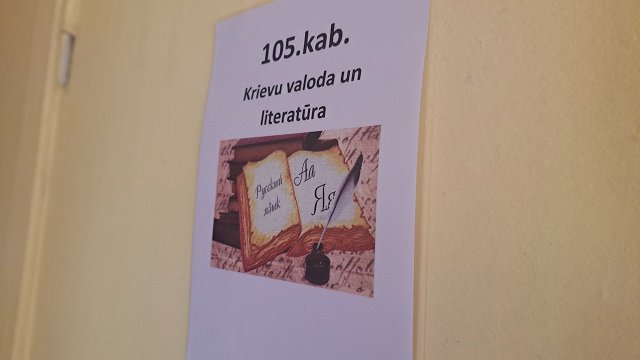Ekaterina lives in Daugavpils, Latvia's second-largest city and also the one with the biggest Russian-speaking proportion. Ekaterina has lived in Latvia for 49 years and worked in customer service. She said she had come from Krasnoyarsk and married in Latgale at the age of 20, but now is almost 70 years old. She has two children and grandchildren, all Latvian citizens. After the restoration of independence, Ekaterina was the only one in the family with a 'non-citizen' passport. But at the age of 55, when Latvia joined the European Union, she decided in favor of Russian citizenship.
"I took Russian citizenship because I was given a Russian pension. Yes, a Russian pension even for the time until 1991, even though I lived in Latvia since 1975. But I had a 25-27-year work experience in Russia. While the international treaties were not there yet, it all was hanging in the air," said Ekaterina.
When, after seven years, the old-age pension came in Latvian legislation, she took the Latvian pension.
"There are only economic reasons, not political, no love for Russia. I don't vote, I don't go to elections, because that country for me is 50 years in the past. My life is here."
Once every five years, Ekaterina renewed her permanent residence permit. This year, the document will be annulled if she doesn't pass the state language exam at A2 level.
Currently, only around 10% of the 18,000 residents needing to pass the exam have registered for it. Those over the age of 75, those with serious health issues, and those who have obtained education in Latvian, are exempted. Ekaterina is not. She has not applied for the exam yet because she thinks her language level is not good enough. She has moved to her daughter's place in Rīga and is attending language lessons but at her age, things slip her memory. She said she was afraid for the future, and knew many people like her.
"After yesterday's class, I did not sleep all night, I had nightmares. It's my age. If I were 10 years younger, my brain would work differently," said Ekaterina.
How is it possible to live here for so many years and not learn the language? Ekaterina says – she was in a Russian-speaking bubble in Daugavpils. They spoke Russian in the family and at the workplace as a hairdresser. Most had arrived in Soviet times and their children had gone to Russian schools.
People like Ekaterina must submit documents to the Citizenship and Migration Affairs Office by May 18. Latvian language knowledge is not the only criterion to receive the status of a permanent EU citizen. "Language skills, finances, being in Latvia for the past five years, with absence no longer than 10 months in total. Russian citizens have an extra check with the security authorities," said the PMLP's head Maira Roze.
She added that the office might not cope if the Russian citizens suddenly came all at once.
"If we got 20-25 thousand documents [..] with these resources we have now, we cannot do it. We have 48 vacancies for three years but people don't apply," said Roze.
Professor of the University of Latvia, political scientist Jānis Ikstens said that this is the culmination of an 'ailment' that Latvia has had for decades.
"Here we see Latvian policy-making in all its glory. We have problems that have been festering for years that are expected to be solved at the wave of a hand. It doesn't happen like that. It's not just about people who cannot learn the language within three or six months, but about the state institutions' readiness to do what is expected. This is just another example," said Ikstens.
On the other hand, the requirement itself is just, said Ikstens. The requirement to communicate in Latvian, when getting out of the Daugavpls bubble, is neither exaggerated nor wrong.
"Latvian teenagers don't know Russian that well. Should they learn Russian to give the lady a seat on public transport? Or to explain which way is the Rīga central station?" said Ikstens.
Ekaterina, meanwhile, is trying to learn Latvian and use it. Ending the conversation with Latvian Radio, she bids farewell: "Uz redzēšanos! Visu labu!"





























